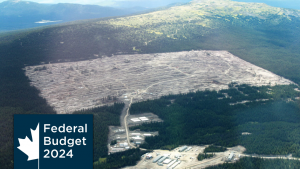The past few years have been some of the most eventful years for the Canadian construction industry in the past 25 years. The COVID-19 pandemic-induced shutdowns created havoc for contractors focused on non-essential construction work. It expanded health and safety challenges onsite and led to supply chain disruptions that impacted schedules, pricing and project co-ordination.
As we reached the end of 2022, the Canadian government, like many across the world, continued to grapple with inflation well above their two per cent target; resulting in successive moves by the central bank to raise interest rates.
What will the continuing lingering impacts of COVID-19 be? What impact will rising interest rates have on the construction community? How will Canadian contractors continue to adapt to advancements in the use of new building methods and technology to remain competitive? The construction team at FCA has done its best to crystal ball some of our 2023 projections.
Interest Rates
Interest rates are the topic de jour for people across Canada. The impact of these is only beginning to be felt as we head into 2023.
In the second half of 2022, cracks began to appear. A high interest rate environment tends to weed out the poorest performers in the marketplace.
Contractors with a significant dependence on operating debt to cash flow their operations are seeing costs escalate. Fortunately, margins have remained strong due to capacity shortages but as interest rates bite, buyers of construction may also reduce spending, increasing competition and put downward pressure on margins.
In addition, contractors that were able to tap an ever-increasing pool of equity in their properties are now seeing prices stabilize and decline, leaving them one less route to raise cash. A focus on lean construction and low and flexible overhead should be a significant priority for contractors in 2023 along with a reduction in debt.
High interest rates will remain a challenge for heavily indebted contractors and we suspect high rates will last longer than most suspect.
Labour Shortages
Labour shortages continue to persist in markets across the globe. Despite, and contrary to rising interest rates, the labour market has continued to be robust.
Furthermore, the retiring of the baby boom generation has exacerbated a talent shortage in the construction industry.
Contractors are continuing to adapt to these changes by finding ways to attract and retain staff in ways outside of pure compensation. Wellness programs, strong benefits, retirement packages and extra perks that focus on building a positive and inclusive culture are just a few.
Contractors will need to continue to look towards immigration and retraining from other industries to fill this gap. We have heard numerous success stories from contractors in utilizing foreign worker recruitment agencies to bring talented people to Canada with unique and fresh outlooks on how to deliver construction.
We at FCA Surety do not see the labour shortage abating any time soon. If immigration picks up again, and interest rates bite, the shortage may moderate but this will likely occur over a number of years.
Project Delivery
Project delivery seems to be a major challenge in Canada. Models like P3, IPD and others promised to integrate project teams, appropriately transfer risk to those that can bear them and deliver project reliably on time and on budget.
Unfortunately, in many cases these promises have not been delivered on. Overall, the relationship between owners, contractors and subtrades continues to be one where parties are looking to transfer risk to others and deliver the lowest cost solution.
As the headlines have confirmed, this has led to litigation, project delays and finger pointing within project teams. Delivering large-scale construction projects is complex. Ensuring that project teams have appropriate experience, a robust design and that an adequate pre-construction phase occurs is crucial.
It is also important that all parties are realistic and open in discussing the inevitable challenges that arise on these projects, as that is the only way we can get them done. Owners should be focusing less on appeasing voters with talk of strict budgets and more on delivering the best and most reliable long-term solution.
Material Price Increases
Material price increases were a significant challenge for contractors in 2021 and 2022. The impacts of these increases seem to be moderating and in fact receding.
A recent article in the Daily Commercial News outlines some significant short-term decreases in material costs.
Ultimately, a stabilization in pricing is welcomed by all parties as these increases have led to challenges maintaining bid margins and managing budgets with owners. This has resulted in a large focus on how such significant fluctuations can be dealt with contractually, whether through escalation clauses, owners sourcing certain materials directly or parties looking at alternate options to bid specified items.
In a world that seems to be moving away from globalization rather than closer to it, our concern remains that isolated and significant price fluctuations will remain a problem for certain material inputs.
Technology
Innovation in construction is something we feel needs to be fostered more within the Canadian marketplace. In our experience, public owners are especially reluctant to embrace new methods of constructing or new technologies to increase efficiency.
The process to have new technologies adopted and written into specifications is time consuming and cumbersome. Some of this is justifiably rooted in ensuring the efficacy of these solutions, but it seems that Canada lags behind other countries globally in embracing innovation in construction.
Governments need to foster innovation in construction to find ways for contractors and manufacturers to experiment safely and bring good solutions to the market quickly. If not, we will find it difficult to close a persistently large infrastructure gap.
Resiliency
Despite the concern of many in the industry at the outset of the COVID-19 pandemic, the industry has remained incredibly resilient. Certainly, the challenging landscape led to many contractors experiencing financial strain, that is an unavoidable truth.
That being said, the industry as a whole leaned into the best practices that are required to sustain a business through all the challenges that have been discussed thus far.
Contractors grappled with the changes, implemented solutions to those and for the most part, in our experience, have prospered. Despite all of these challenges, we at FCA remain wholeheartedly confident that the Canadian construction industry has a very bright future ahead.
Andrew Cartwright is the vice-president of surety for FCA Insurance. With over 10 years of experience as an RVP of a large national surety company, Cartwright uses his expertise to help FCAs clients manage and build their surety capacity.
Matt Manol is the manager of surety for FCA Insurance. Manol recently joined FCA after spending his last six years underwriting contract and commercial surety products for a large national surety company. Send comments and column ideas to editor@dailycommercialnews.com.











Recent Comments
comments for this post are closed